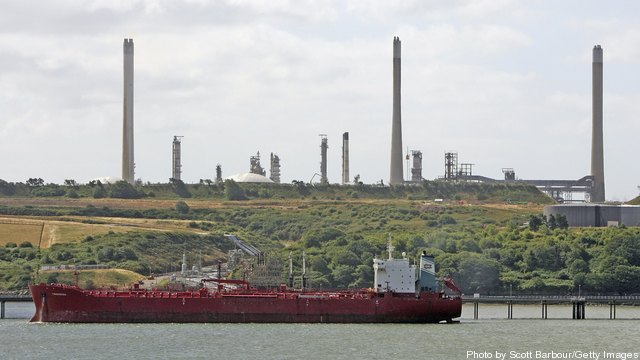
China’s economy, the red-hot growth engine that propelled global energy demand to dizzying heights over the last decade, is slowing down “faster than anyone forecast,” and could help keep global oil prices from soaring in a supply disruption.
That according to Edward Morse, Global Head of Commodity Research with Citi Group Global Markets. Speaking to the Department of Energy/National Association of State Energy Officials Winter Fuels Outlook Conference Oct. 10 in Washington, DC, Morse said China’s speedy reduction in import demand, along with the economic woes of the Eurozone, could have a significant leavening effect on world oil prices.
China recently has had to import more than half the oil it uses to meet demands of its growing economy, and its imports have become a major determinant of world oil prices. Flattening growth there and in Europe will mean less need for imports in both markets at the same time.
Geopolitics vs. Economics
Geopolitical risks, such as hostilities with Iran around the Straits of Hormuz, tend to boost oil prices, Morse said, but sagging demand as economic growth flags pulls prices in the other direction. Overall, he said, “it’s a tug of war” over which will dominate in the coming months.
Morse said Citi believes “the economics will win out” and projects slower global GDP growth than other analysts, despite potential trouble spots “simmering” all over the Middle East. He pointed not just to Iran, but to Syria, Yemen and Sudan as points of disruption in global oil supply.
Countering the disruptions, Morse said, are “robust” growth of Canadian and US supply, expansion of the United Arab Emirates pipeline that skirts the Straits of Hormuz, and expansion of output in Saudi Arabia.
In the US, an upsurge in rail transport is getting more crude oil out of Canada and the US Midwest. Rail carriage was hardly a blip a year ago, but the bottleneck on crude pipelines out of the new producing areas has led more producers to seek alternatives. Morse said rail traffic will hit 500,000 barrels/day this year, and railroads can take crude to refineries on either coast for $9-11/barrel, making rail transport competitive.
One big uncertainty now, Morse said, is Europe. Production from the North Sea is declining and “struggling,” he said, and imports from Africa and Russia have not been enough to make up the difference. In addition, European refineries are closing.
The Eurozone economy’s ills mean a drop in oil demand generally. But if cold weather surges in Europe this winter, it could “amplify” demand for both crude and refined products, and that would raise prices in the US as well, he said.
Another factor that could lower demand and dampen oil prices, Morse said, is the US “fiscal cliff.” The Congress is expected to return to Washington after the Presidential election and stop a mechanism it previously put in place, a combination of tax hikes and spending cuts considered so noxious it would force Congress to reach tough budget and tax compromises.
But Congress has never made those compromises, and Morse said letting the mechanism take effect at year’s end would cut an estimated 1.3% off US economic growth in 2013 “and make a double-dip recession inevitable.”
